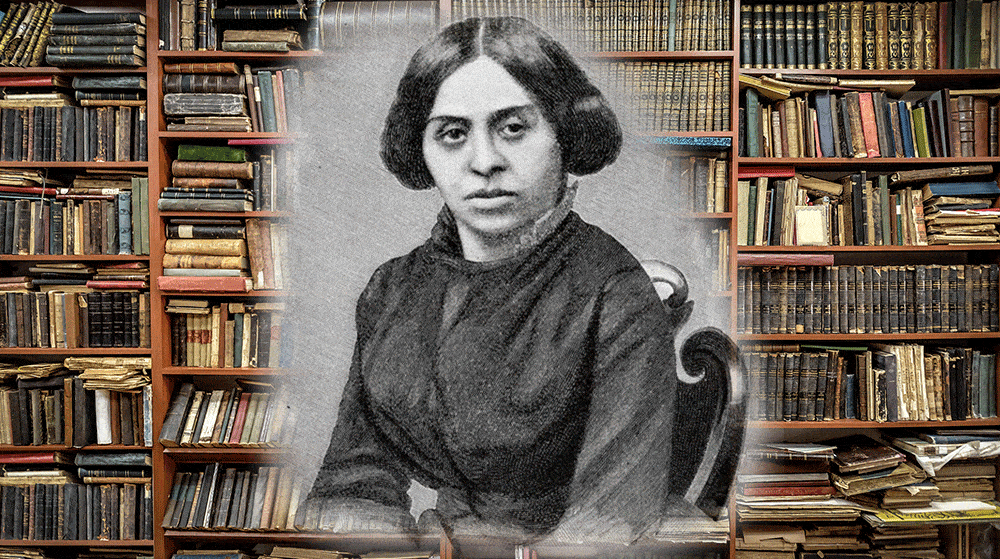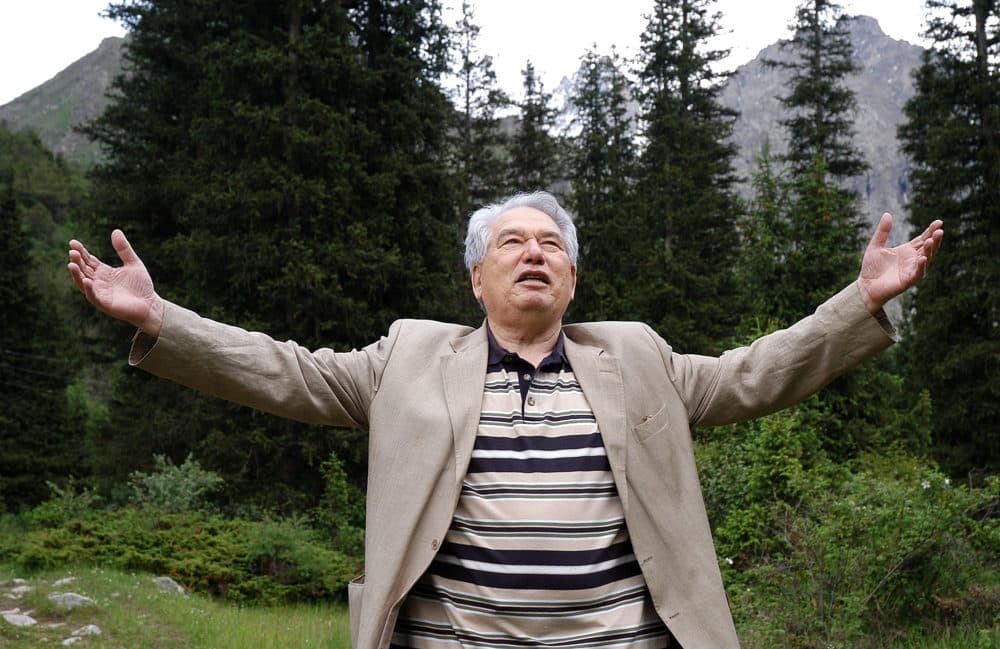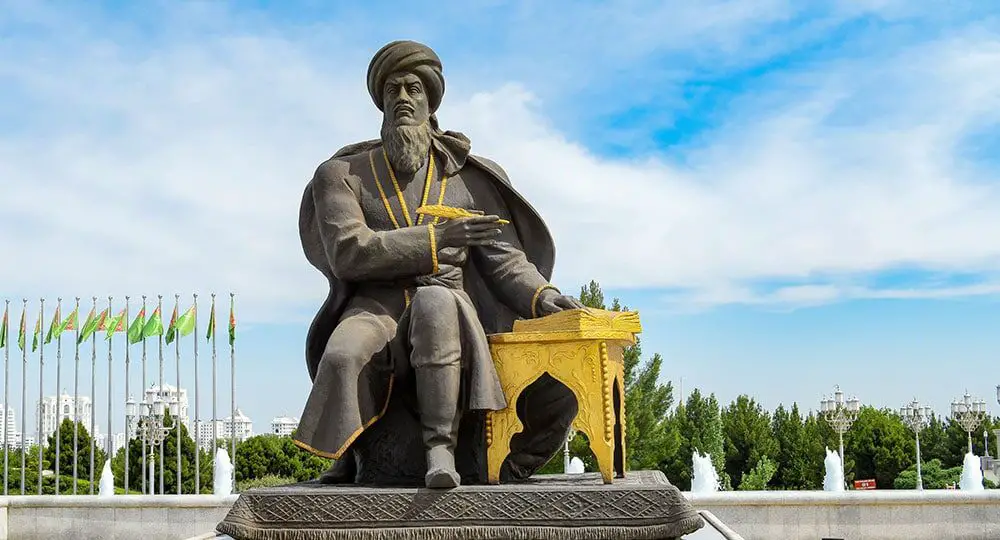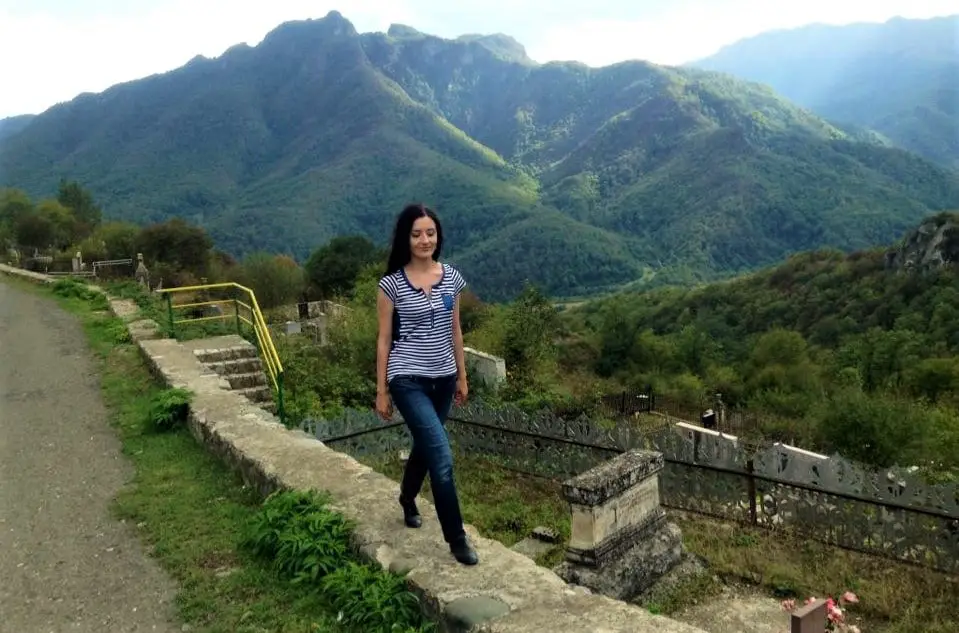“He regards himself as a Dagestani, but he doesn’t know what that means. This is a problem of many people in Russia, but especially in the Caucasus after seventy years of Soviet erosion of historical memory.”
This is how Alisa Ganieva describes a character from her first full-length novel, The Mountain and the Wall. The sentiment is relevant to much of her work. Through her writing, she hopes to provide readers with an image of what she sees as the real Dagestan, whether those readers are Dagestani themselves or from anywhere else in the world.
Alisa Ganieva’s Early Life and Education
Alisa Ganieva was born in Moscow in 1985, but she grew up in the Republic of Dagestan in the northern Caucasus (and southern Russia). She was born into an Avar family – the Avars are a northeast Caucasian ethnic group, and the largest ethnic group of several that make up the population of Dagestan. She lived in Gunib, a small town in the mountains of Dagestan, before attending school in Makhachkala, the capital of and largest city in the region, with a population of close to 600,000. She returned to Moscow in 2002 and later graduated from the department of literary criticism at the Maxim Gorky Literary Institute. She then found a job as a literary critic for Nezavisimaya Gazeta, a daily newspaper.
Salam, Dalgat!
Ganieva says she had a passion for writing as early as preschool. As a child, she wrote poetry and moved later on to reviews and essays as a teenager. Her first prose work, a novella titled Salam, Dalgat! (Russian: Салам тебе, Далгат!), was published in 2009, and received a Debut Prize, a prestigious award for young writers of Russian-language literature, beating out tens of thousands of other submitted novels and novellas. The story follows a day in the life of a young man, Dalgat, as he travels through Makhachkala in search of a relative.
Salam, Dalgat! was first published not under Ganieva’s name, but under a male pseudonym – Gulla Khirachev. In an interview, she said that people in Dagestan understood that it was a pseudonym, as the Avar name Gulla is archaic, but they still believed the author to be male. In fact, she also said that she felt less like herself, and more like a man while writing Salam, Dalgat!, and in another interview discussed the way that her writing (at least in Salam, Dalgat!) is seen as having a very male literary style.
Above: An interview with Alisa Ganieva about her work and her country.
Needless to say, the reveal that she was a woman sparked discussion, particularly within her highly traditional homeland, about what exactly constitutes a “male writing style,” as opposed to a female one. This line of thought, which delinates gender roles within writing pays consideration to such details as the use of certain words (do women use more adjectives?), subject matter (is it only women who write about love?), and focus on certain characters (should we assume someone writing mainly about men is a man?).
Ganieva chose to write under a pseudonym, and specifically a male one, in large part because she believed Dagestani readers would think it improper for a woman to write about the streets, a subject matter that was, again, generally considered “male.” She was also already an established literary critic, and she wanted a clean slate for her story to be judged upon, and thought that not only foregoing her own name, but going by a man’s name, was an important part of that.
Her true identity was only revealed at the award ceremony for the Debut Prize, and she received mixed reactions afterwards. Many people from Dagestan were upset, not only that it was a woman writing about such things, as she had expected, but that she was revealing her society’s problems to the outside world. Others were excited that someone had finally written about them and their homeland, and from a not-entirely-negative, outside perspective, and people from outside of Dagestan were certainly excited to hear about a place that was largely new to them.
To read an English-language excerpt from the story, click here.
The Continued Writing of Alisa Ganieva
Ganieva has since published three novels: The Mountain and the Wall (Russian: Праздничная гора), published 2012; Bride and Groom (Russian: Жених и невеста), published 2015; and Offended Sensibilities (Russian: Оскорбленные чувства), published 2018. She also published a collection of stories and essays, which, like her novella, was titled Salam, Dalgat!, in 2010. That same year, she received the notable Triumph Prize in the young winners category, a Russian award for writers, artists, actors, and musicians. She has been short- and long-listed for a number of major literary awards, and her work has been translated into several languages.
A major motivation for Ganieva is her wish to present Dagestan and the Caucasus as she, someone who grew up in the region, sees it. Much of the scant previous writing on the region has come from outsiders, including many soldiers who fought there, who exoticize it and do not have many kind things to say. This is not to say that Ganieva writes about Dagestan in a solely positive light – she attempts to portray it with nuance but without bias, with the good and the bad shown so that people can draw their own conclusions.
Alisa Ganieva speaks, in English, about what makes writers write.
Ganieva also gives voice to Dagestan through its unique regional language. Russian is the main lingua franca in Dagestan, but the republic can be considered the most linguistically diverse of all the Northern Caucasus Republics (which also includes several others such as Chechnya, Ingushetia, and North Ossetia); over 30 languages are recognized there and a number of Russia’s endangered languages are spoken within the republic. It thus should come as no surprise that the Russian spoken in Dagestan has certain regional differences of its own, and Ganieva works with both these Dagestani variations on Russian and expressions from other languages spoken in the region, contributing to the authenticity of the voice she provides.
Ganieva’s Life as an Author
Since writing Salam, Dalgat! and winning the Debut Prize, Ganieva has shifted entirely from literary criticism over to fiction-writing. Along with the awards she has received and been nominated for, she was listed by The Guardian in 2015 as one of the thirty most talented young people in Moscow, and she has since become a juror for some of those awards. In 2012, she participated in the International Writing Program at the University of Iowa, and she has also taught creative writing in a summer program there, as well as lectured at King’s College (London). Her writing has opened many doors for her, and though she may not like to discuss what she’s working on at any given time, there is little doubt that she will continue to impress critics and readers alike.
You Might Also Like
(May include current article)

Nadezhda Khvoshchinskaya – A Forgotten Great of Russian Literature
Nadezhda Khvoshchinskaya became a prolific and widely popular author in early 19th century Russia. Her most famous novels reflect on the stylistic staples of 19th century Russian literature, focusing on women’s issues and other social problems through the lens of realism. Despite her fame and success, Nadezhda Khvoshchinskaya has largely been forgotten in the study […]

Boris Ryzhii, Russia’s Bandit Poet of the 90s
No other Russian poet of the 90s stands out like Boris Ryzhii. He received some of Russia’s highest literary honors, including honorable mention for the Anti-Booker Prize, and, after his early death, the Northern Palmyra. Composed amidst the chaos and crime of perestroika, his poems stand like opponents in a boxing ring, where ugliness and […]

Chingiz Aitmatov: Respected Author, Diplomat, and Advocate for Kyrgyz Culture
Chingiz Aitmatov is best known as Kyrgyzstan’s most beloved author, but he represents much more than that to the Kyrgyz people today. His more than thirty novels represent honestly the Soviet experience and the social and moral dilemmas that Central Asian people endured. He wrote about love, heroism, friendship, nature, inequality between men and women, […]

Magtymguly Pyragy and the Turkmen Nation
The name Magtymguly Pyragy might sound hopelessly unfamiliar to a Western ear. For Turkmens, the main ethnic group inhabiting the former Soviet republic Turkmenistan, however, it is a household name. Magtymguly (pronounced Mahg-tim-goo-lee) was an 18th century Sufi poet and spiritual teacher. Today he is considered the father of Turkmen literature and is a nationally […]

Zakhar Prilepin: His Literature and Nationalism
Zakhar Prilepin (Захар Прилепин), born Evgeny Nikolaevich Prilepin in 1975, is an award-winning Russian author, journalist, politician, and activist from the Ryazan Oblast, which borders the Moscow Region in Russia. He is known for both his strikingly realistic writing as well as for his political activity as a nationalist politician and organizer. Zakhar Prilepin’s Early […]







